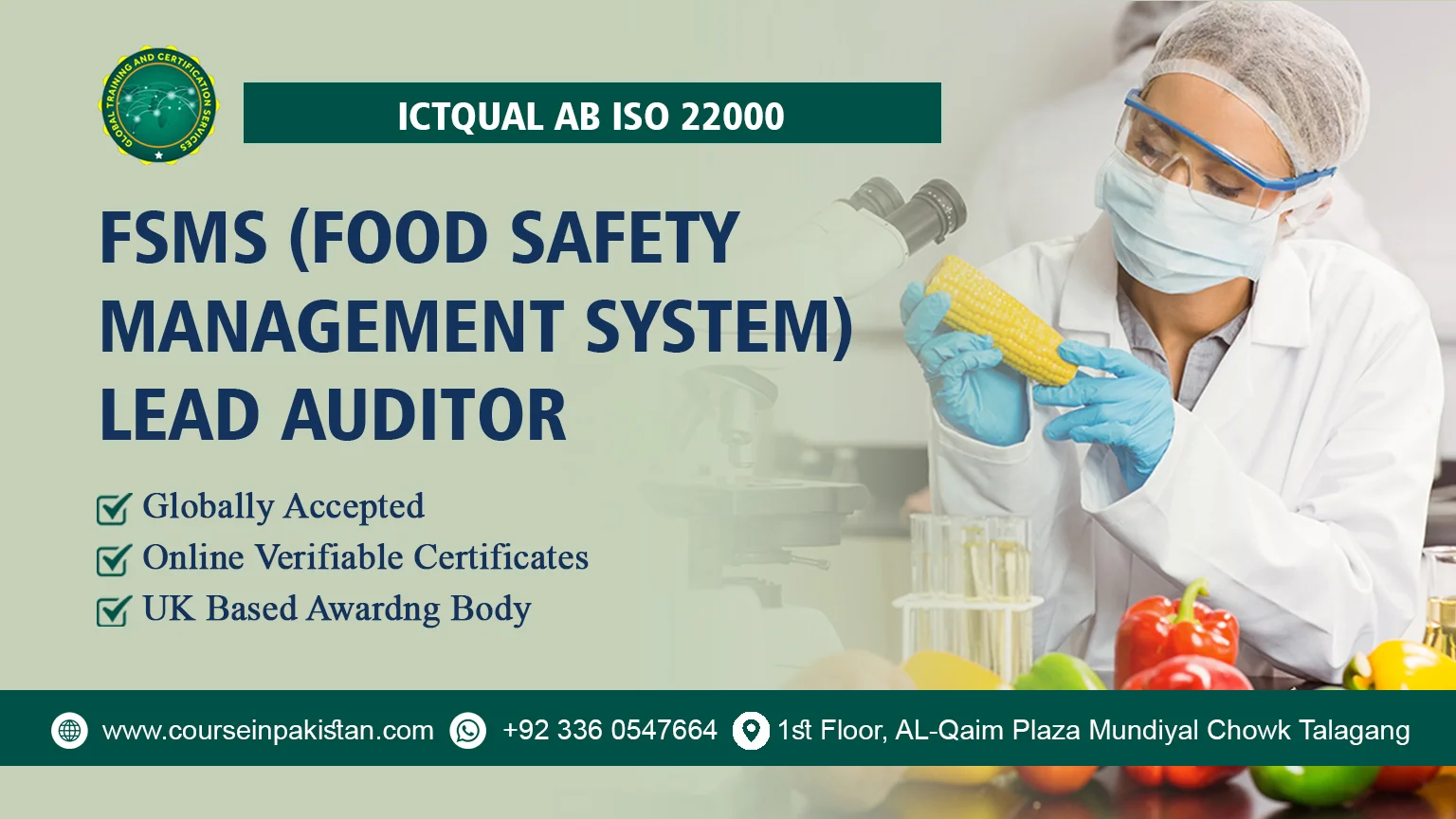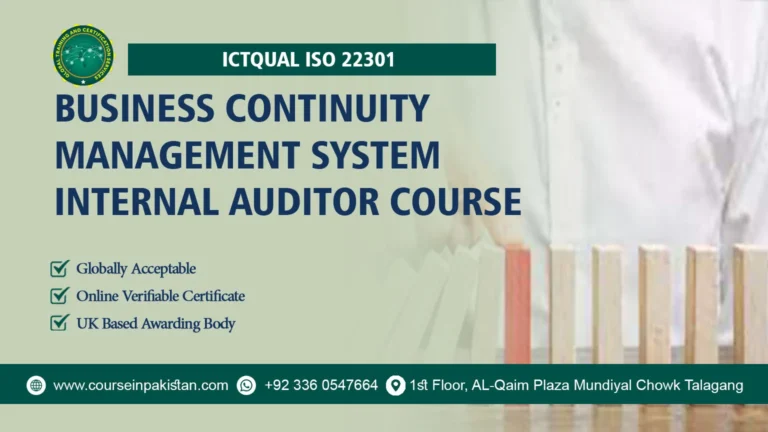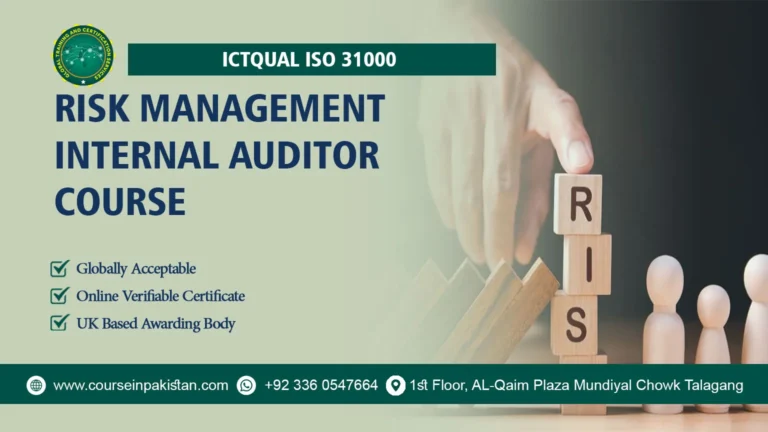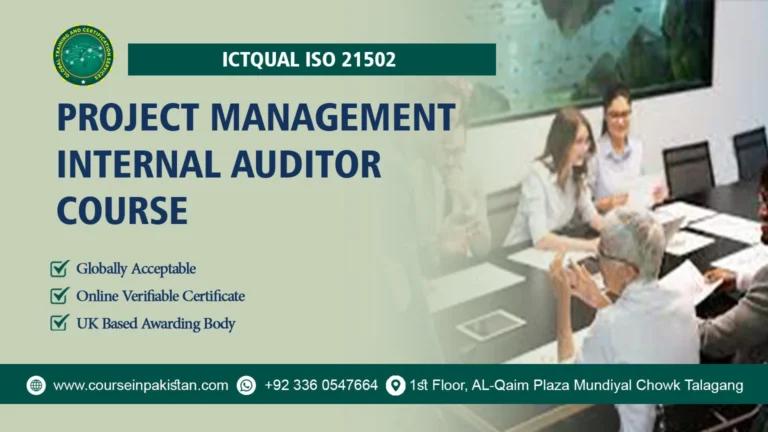
ISO 22000 FSMS (Food Safety Management System) Lead Auditor
In the realm of food safety, adherence to rigorous standards is non-negotiable. The ISO 22000 FSMS (Food Safety Management System) Lead Auditor course stands out as a pivotal program for professionals looking to master the intricacies of auditing food safety management systems according to international standards. Let’s explore what this course entails and why it’s indispensable in today’s food industry.
Course Introduction
The ISO 22000 FSMS Lead Auditor course is designed to equip participants with the knowledge and skills required to conduct audits of Food Safety Management Systems based on ISO 22000 standards. This certification is essential for individuals aiming to lead auditing teams and ensure compliance with global food safety regulations.
Course Overview
This comprehensive course covers the principles and practices of auditing food safety management systems. Participants will gain insights into ISO 22000 requirements, audit methodologies, and effective techniques for assessing and improving food safety practices within organizations.
Course Benefits
- Expertise Enhancement: Develop specialized knowledge in auditing food safety management systems.
- Career Advancement: Boost career prospects with a globally recognized certification.
- Enhanced Food Safety: Contribute to ensuring safe food practices and compliance with regulatory standards.
- Risk Mitigation: Identify potential hazards and implement preventive measures.
- Organizational Excellence: Help organizations achieve and maintain ISO 22000 certification, enhancing credibility and trust among stakeholders.
Course Study Units
- Introduction to Food Safety Management Systems (FSMS)
- ISO 22000 Requirements
- Hazard Analysis and Critical Control Points (HACCP)
- Good Manufacturing Practices (GMP)
- Prerequisite Programs
- Food Safety Risk Assessment and Management
- Documentation and Record Keeping
- Internal Auditing and Management Review
Learning Outcomes
Study Unit: Introduction to Food Safety Management Systems (FSMS)
Learning Outcomes:
- Understand the importance of Food Safety Management Systems (FSMS) in ensuring safe food practices.
- Explain the fundamental principles and objectives of FSMS.
- Recognize the benefits of implementing FSMS based on ISO 22000 standards.
Study Unit: ISO 22000 Requirements
Learning Outcomes:
- Interpret the requirements outlined in ISO 22000 for Food Safety Management Systems.
- Apply ISO 22000 requirements to different stages of the food supply chain.
- Outline the steps needed to achieve and maintain ISO 22000 certification.
Study Unit: Hazard Analysis and Critical Control Points (HACCP)
Learning Outcomes:
- Demonstrate proficiency in conducting Hazard Analysis and Critical Control Points (HACCP) assessments.
- Identify critical control points and establish control measures.
- Develop and implement HACCP plans to mitigate food safety risks.
Study Unit: Good Manufacturing Practices (GMP)
Learning Outcomes:
- Understand the principles and significance of Good Manufacturing Practices (GMP) in food production.
- Implement GMP standards to ensure safe and hygienic food manufacturing processes.
- Evaluate and improve GMP compliance within food manufacturing facilities.
Study Unit: Prerequisite Programs
Learning Outcomes:
- Identify and implement prerequisite programs essential for maintaining food safety.
- Establish procedures for sanitation, pest control, and personnel hygiene.
- Integrate prerequisite programs with FSMS to enhance overall food safety management.
Study Unit: Food Safety Risk Assessment and Management
Learning Outcomes:
- Conduct comprehensive food safety risk assessments based on ISO 22000 guidelines.
- Prioritize food safety risks and hazards based on severity and likelihood.
- Develop risk management strategies to mitigate identified risks effectively.
Study Unit: Documentation and Record Keeping
Learning Outcomes:
- Create and maintain accurate documentation that complies with ISO 22000 requirements.
- Establish protocols for record keeping related to food safety practices and audits.
- Ensure transparency and accessibility of documentation for stakeholders and auditors.
Study Unit: Internal Auditing and Management Review
Learning Outcomes:
- Plan and conduct internal audits of FSMS to evaluate compliance and effectiveness.
- Prepare audit reports and communicate findings to management.
- Facilitate management reviews to drive continual improvement in food safety performance.
These learning outcomes collectively equip participants with the knowledge and skills necessary to effectively manage and audit Food Safety Management Systems according to ISO 22000 standards. By mastering these study units, professionals can contribute to ensuring safe food practices, regulatory compliance, and continuous improvement within the food industry.
Who is This Course For?
The ISO 22000 FSMS Lead Auditor course is ideal for:
- Quality assurance managers and officers
- Food safety consultants and auditors
- Professionals involved in food production, processing, and distribution
- Individuals responsible for implementing and maintaining food safety management systems
Future Progression for This Course
Successful completion of the ISO 22000 FSMS Lead Auditor course opens doors to various career pathways and opportunities in the food safety sector. Graduates may pursue roles such as:
- Senior Food Safety Auditor
- Food Safety Manager/Director
- Consultant specializing in food safety management systems
- Trainer or educator in food safety practices
Furthermore, this certification serves as a solid foundation for professionals looking to advance their careers in quality management systems and regulatory compliance within the food industry.
ISO 22000 FSMS Lead Auditor course represents more than just a training program; it signifies a commitment to excellence and safety in food production and distribution. As global awareness and scrutiny of food safety standards continue to rise, professionals equipped with the expertise gained from this course play a crucial role in safeguarding consumer health and organizational reputation.





